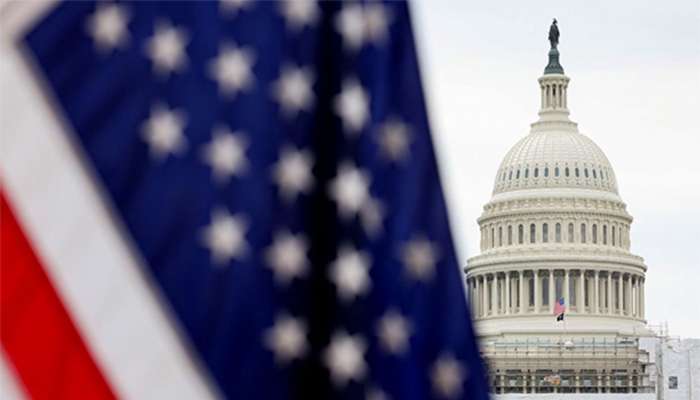
Washington : The United States Congress on Wednesday (local time) approved the federal funding package to reopen the government after a record 43-day shutdown, sending the bill to President Donald Trump for his signature.
The President will be signing the funding bill on camera from the Oval Office, as per the White House.
According to CNN, the measure ends the longest-ever government shutdown in US history, following weeks of bitter political deadlock over an Obamacare-related programme opposed by Republicans.
After the bill was passed by the US Senate earlier this week, the US House of Representatives passed the funding bill by a vote of 222 to 209, with nearly all Republicans and a handful of Democrats voting in favour.
The legislation ensures that government operations resume immediately and sets up a new funding deadline of January 30, although several key programmes--including SNAP, WIC, and veterans' services--will remain funded through the end of fiscal year 2026, as reported by CNN.
Six Democrats have crossed party lines to back the bill, including Representatives Jared Golden, Adam Gray, Marie Gluesenkamp Perez, Henry Cuellar, Tom Suozzi, and Don Davis.
Meanwhile, Republican Representatives Thomas Massie and Greg Steube voted against it.
While the bill averts further disruption to essential services, most Democrats expressed frustration over its failure to secure an extension of expiring enhanced health care subsidies that help Americans pay for insurance premiums, as reported by CNN.
US House Speaker Mike Johnson managed to unite most Republicans behind the measure, despite internal backlash over a controversial Senate provision that allows senators to sue the US Department of Justice for obtaining their phone records during a Biden-era investigation -- potentially yielding payouts exceeding USD 500,000 or more per violation, CNN reported.
"I was shocked by it; I was angry about it," Speaker Johnson said, as quoted by CNN, adding that he was unaware of the language until after the Senate passed the bill. Johnson vowed to revisit and remove the provision in a future House vote.
With the government reopening, lawmakers now face a packed legislative calendar before year-end, including decisions on expiring Obamacare subsidies, the farm bill, and energy credits, as per CNN.